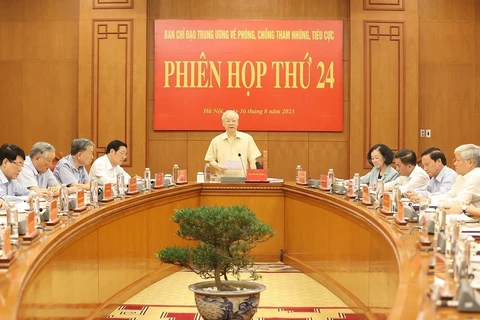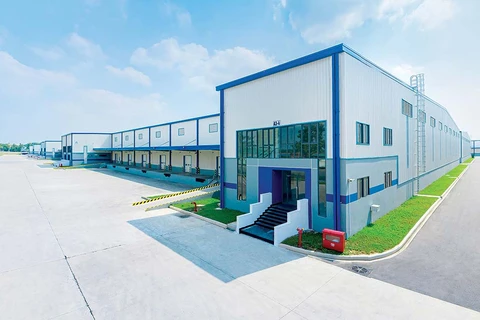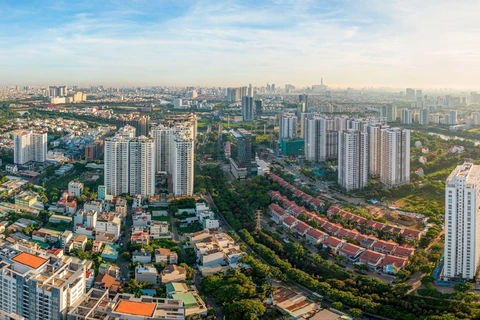 Deputy Prime Minister Tran Hong Ha urges authorities to establish national job, and real estate and land use right exchanges. (Photo: VNA)
Deputy Prime Minister Tran Hong Ha urges authorities to establish national job, and real estate and land use right exchanges. (Photo: VNA) The job exchange will perform the State management over workforce and employers in both public and private sectors, and provide relevant information, he said, asking the Ministry of Labour, Invalids and Social Affairs (MoLISA) to coordinate with other ministries and agencies to standardise data and bring together job centres, making it easier for localities, businesses, and labourers to access services.
The Deputy PM stressed the need to step up the online job exchange model and take solutions to enable brokerage centres to join it in order to ensure rights and interests of guest workers.
MoLISA Deputy Minister Le Van Thanh reported that the country counts 82 public job centres and about 500 businesses offering private services in this regard.
He also pointed to obstacles to the sector regarding the legal system, infrastructure, IT, personnel and data; and suggested the issuance of regulations on data and information standardisation, and the enhancement of supervisions over job transactions, especially those conducted online.
Regarding the national property and land use right exchange, Ha said it should be opened for both public and private sectors, noting that private exchanges should receive favourable conditions to grow healthily.
There should be mechanisms to encourage organisations and individuals to conduct real estate transactions and exercise land use rights not for business purposes on the trading floor, he added.
According to the Deputy Minister of Construction Nguyen Van Sinh, as of the end of 2020, Vietnam had more than 1,600 real estate exchanges, which have played a role in preventing informal transactions and tax losses, and providing information for state management agencies.
The construction ministry will work harder to ensure a healthy, transparent investment environment, and form State information management tools to regulate the market in a timely manner, he said./.
VNA






















